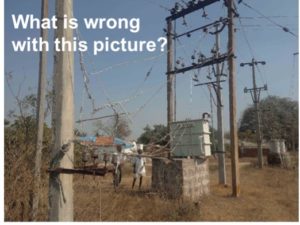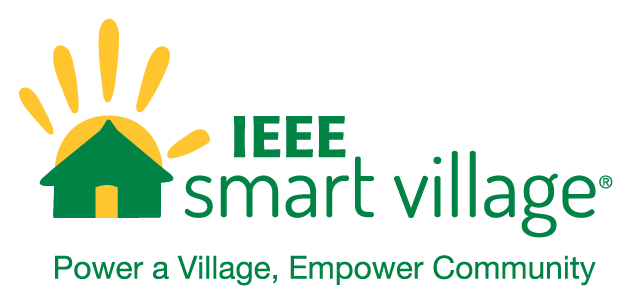Committees
Business and Fund Development Committee
Contact: Robin Podmore
International Fund for Agricultural Development
The Business and Fund Development Committee wrote a major grant in response to an IFAD Request for Proposals on the topic of “Rural youth employment opportunities: Support to integrated agribusiness hubs.” The proposal team included Monica LaBiche Brown, Ellen O’Connell, Rajan Kapur, Kanekwa Kachinga and Mercy Chelangat and Robin Podmore. The Smart Village Entrepreneurs included Etienne Kanjo, Ernest Bah from Torchbearers Foundation, Jude Numfor from REIc and Crystal Mogensen from The Maa Trust. From this proposal, the concept of IEEE Smart Village acting as a hub for facilitating exchange of best practices across IEEE and Rotary subject matter experts and Smart Village Entrepreneurs was formulated. IFAD aims to deliver a total program of work of at least $11 billion from 2022-2024, so it is opportunistic for ISV build a long-term relationship with this funding agency.
United States Trade and Development Administration (USTDA)
REIc, an authorized SunBlazer IV system provider, has been selected as the Prime Contractor for a USTDA-funded $1,000,000 feasibility study to electrify 130 villages in Cameroon while increasing US exports. National Renewable Energy Labs in Golden, Colorado, USA, will act as a subcontractor to perform the study. The pilot system to demonstrate the feasibility of the proposed approach was funded by IEEE Smart Village.
Proposal for Major Energy Infrastructure Company
A proposal has been developed to work with a major energy infrastructure company located in Latin America to provide vocational training and jobs for orphans in an area surrounding a large energy plant. The vocational training and jobs will be focused on brick making, home/office construction, PV mini grids and E-Vehicle charging. The vocational training and jobs will be focused on brick making, home/office construction, PV mini grids and E-Vehicle charging. The vocational training will be provided by subject matter experts from The Maa Trust in Kenya and REIc in Cameroon. This will be an example of IEEE Smart Village Entrepreneurial expertise being shared across different continents.
Power and Energy Society
A budgeted amount of $400K for ISV from the PES is expected to be released in 2021 following reorganization of IEEE Smart Village governance and management committee along with completion of the independent audit.
Coaching for Grant Writing
Ellen O’Connell has developed a presentation on the topic of “Best Practices for Grant Writing.” This is being presented with excellent feedback to ISV Regional and Management Working Groups and Rotary E-Club of Silicon Valley Smart Village. With continued mentoring of this excellent standard, we anticipate that ISV Entrepreneurs and Volunteers will significantly increase their capacity to write professional and successful grant applications based on sustainable and profitable LEAN canvas business plans. Ellen O’Connell has over three decades of experience working with non-profits in the conservation and humanitarian aid sectors, including a project spearheaded by conservationist and paleontologist Richard E. Leakey to build a museum in the Rift Valley of Kenya that will tell the story of the origins of humankind.
Global Telehealth Networks
The Global Telehealth Network project is being developed by a cooperative venture of Rotary International and IEEE Smart Village under the auspices of Rotary E-Club of Silicon Valley Smart Village. The project is being jointly funded by IEEE Smart Village and Rotary International under the Rotary Global Grant process. The project is being directed by Dr. Jack Higgins CEO of NGO Global Telehealth Networks. Jack is orchestrating all the in-country participants, managing the Rotary Global Grant, setting requirements for medical instruments along with the patient – doctor matching software and enlisting all the volunteer doctors. The goal is to bring remote expert medical advice from screened and qualified doctors to three clinics and one hospital in Kenya and two medical clinics in Uganda. The sites include Talek and Sekenani clinics in the Maasai Mara, Nambale Magnet School clinic and Matibabu hospital and clinic in West Kenya, Kyangwali Refugee camp clinic and Rukungiri school clinic in Uganda. IEEE Smart Village Entrepreneur Jude Numfor and REIc, will oversee installation of PV power supplies, computer systems and internet access. The design, development and testing of the patient – doctor matching software is being performed by an expert team of African software developers. Design is performed with UML tools, React for the user interface, Postgres for the database and Python for the patient – doctor matching algorithm.
Education Committee
Contact: Dave Lansdale
The current Education Committee leadership was formally announced in June and July 2020, following the appointment of John Nelson to replace Ray Larsen as ISVx President. We identified the following priorities, building on the work of Olga Anderson as previous Chair of the Committee:
- To identify a clear mission and articulate objectives to support the mission of ISVx, focused on investing in human capital both in local communities around the world, as well as in our ISVx institutional team
- To set priorities that will allow us to stay focused, in collaboration with ISVx leadership and other ISVx committees (see priorities)
- To bring closure to the 2019 PES Education grants and prepare presentations and reports including best practices, lessons learned, and institutional implications
- To continue the tradition of biweekly meetings that Olga created as a forum for sharing stories, programs, resources, and information both from the field as well as from the leadership of ISVx, and
- To provide networking and guidance for the launch of a youth network in collaboration with the three regional working groups: Africa, South Asia, and Latin America.
The next priorities Ed Com defined include:
- Investing in human capital for the sustainability of ISV development projects.
- Our principal target is the SV entrepreneur and her/his team, whom we are defining as agents of transformation.
- Holistic development is further defined as electrification and/or connectivity plus education (including education for entrepreneurship)
- EdComm is a forum/clearinghouse for sharing and disseminating educational, training, and other best practices in the ISV program.
- Create a repository of [curricula and pedagogical tools], program descriptions [and reports], and contact information to facilitate sharing within the ISV [community]
Project Development Committee
Contact: David Kankam
Project Development Committee’s (PDC’s) main job is to see all new proposals through the application stages, which has three stages from Letter of Intent to Qualification Stage to Letter of Intent Project Approval. For the review task PDC has team members assigned to each new application to help guide it through the entire process. PDC-approved projects are then handed off to the Operations Committee for comments before going to the Steering Committee for budget approval, at which stage the formal Project Agreement with IEEE Legal oversight is launched, the last hurdle before IEEE funds can be transferred. Meetings are held on the second Tuesday of every month.
Marketing Committee
Contact Mercy Chelangat
The role of the IEEE Smart Village (ISV) Marketing Committee (MarCom) is to conduct a set of activities that will ensure the cultivation of useful relationships amongst ISV key stakeholders, ensuring that sufficient value is provided to them. This will ensure visibility of the work being done by the various Working Groups (WGs), Management Committees, Governing Board societies, the IEEE Foundation, and the energy entrepreneurs. The Committee’s primary responsibilities are as follows:
- Provide the Management committee with relevant updates on marketing progress.
- Create a plan to achieve the short- and long-term goals of the organization.
- Develop and implement a comprehensive marketing and communications strategy.
- Pay attention to organization activities that need to be highlighted on the platforms.
- Maintain the integrity and increase awareness of the organization.
- Assist with continuous update of the website with relevant and current content.
- Engage audience through social media platforms.
- Identify collaborative opportunities with similar organizations on new and existing events.
- Provide visibility to crowdfunding campaigns and help with fundraising efforts.
- Avail an editorial calendar with details on the plan of online posts and content.
- Solicit testimonials from community entrepreneurs on the impact of ISV support.
- Work with the Development Committee to discover grant funding opportunities to support ISVx projects.
- Increase membership development for both ISV and IEEE.
- Onboarding volunteers to spread awareness on the initiative.
| Sub-Committee Organization | Team Members |
| Documentation and Content Creation | Atheena and Oluleke |
| Graphics Work Designs | Devika Muralee |
| Strategic Planning Coordinator | Saran KS |
| Social Media Engagement (Facebook, LinkedIn, Twitter, YouTube, Instagram, Medium) | Mercy Chelangat K. |
| Digital Marketing and Analytics | Waleed bin Nasir |
| Website (Newsletter, Blog) | Kanekwa Kachinga, Dick, Jeff |
Technology Committee
Contact: Paul Savage
The role of the Technology Committee is to systematize solutions for remote and off-grid areas to bring electricity, digital classroom education, interconnectivity and related technologies based on demonstrated demands from communities and supported entrepreneurs adopting ISV’s three-pillar business model. Solutions rely as much as possible on Commercial off-the-shelf (COTS) components to make modular, easily scalable field-tested solutions. Our designs are intended to be IEEE Open Source to On-The-Ground (OTG) business partners, who are free to modify them as needed. Portable Battery kits were sent to REI-c and SNL for field testing of the prototype units. Two SunBlazer prototypes under the control of the Tech Committee are being considered for deployment. One is being considered to support an ISVx Student Branch being formed at Villanova University in Pennsylvania, USA, and another unit is being considered for deployment to a Native American community in need of electricity.
Safety, Quality, Reliability and Standards Committee
Contact: Bruno Lequesne
The purpose of this committee is to promote discussions and disseminate information around safety, reliability, quality, and standards as they apply to ISVx projects, and more broadly to the communities in which they operate. These issues are often overlooked during planning, resulting in adverse consequences in terms of cost and durability over the duration of the project.
Why safety?
Electrical accidents are relatively rare, compared to other types of accidents, but are proportionally more deadly. Introducing electricity, or developing electricity in a specific region, is a wonderful thing, transforming lives for the better. This is also a great opportunity to raise awareness around safety issues, and share some simple precautions to take around electricity, as well as around any machinery.
Why reliability?
Poor quality equipment can doom the best thought-out and executed project. Early failure will lead to disappointment among customers, necessitate unscheduled and possibly costly repairs, and distract a project from an otherwise great growth trajectory. Thinking through quality issues early on and assuring products meet specifications can go a long way in ensuring success.
Why quality?
Quality ensures reliability and safety, and as such is an important component of project development and implementation. It is important to ensure good quality in design basis notes, engineering drawings, construction methodology, purchase-order terms and conditions, contract conditions including good definition of deliverables, guaranteed performance parameters, warranties offered, etc.
Why standards?
ISVx operates in parts of the world where standards are sometimes not well established, and if they are, not well enforced. As a result, imported equipment is designed on varying standards. Furthermore, the standards may not be well adapted to a location for which they were not developed. While standard development per se is beyond the reach of ISVx projects, awareness of their importance and help with developing them where possible is critical.
These three topics are interrelated: Poor quality equipment may fail, resulting in possible short circuits and safety issues. All of them can result in wasted efforts or worse. This committee’s role is to gather information around these topics; raise awareness among entrepreneurs, their customers, and society at large. Ultimately, information better tailored to the Smart Village audience will be developed by this committee. The group is also working hand in hand with academics and where appropriate government and standard bodies to foster the education of engineers well versed in these topics, and capable of developing proper resources for their countries.
The committee is relatively new and looking for volunteers. We have teams for Africa, Latin America, South Asia and China dedicated to this topic in their respective regions, all looking to grow this activity with motivated volunteers.
For further information, contact Bruno Lequesne, SRS Committee vice-chair: Bruno.lequesne@ieee.org.
Resources:
- Presentation on ISVx SRS Committee, July 2021, by Bruno Lequesne, ISVx vice-chair
- Electricity Safety handbook, Central Electricity Authority of India.
- Movie on safety for rural India (available in Tegulu, English, French, Arabic, Spanish and Portuguese): https://ieeetv.ieee.org/ieeetv-specials/awareness-and-prevention-of-electrical-accidents

Example of poor quality, failing equipment and the danger it represents (Photo credit: C. Satish)
Membership Committee
Contact David Sackey
The Membership Committee has the following activities.
1. Increasing Membership
- Coordinate all recruitment activities – review CVs, career report assessment, as well as shortlist eligible candidates for a specific committee.
- Recommending means for increasing membership base, especially among underrepresented groups including, but not limited to, African Americans, Latinos, native Americans, and Asian/pacific-Americans.
- Publish annually, the list of all members and those who are of good standing
- Recommending ways to acknowledge new members and to encourage participation in ISV activities.
- Conducting welcoming activities via the committee’s key contact program.
2. Promoting Membership Service
- Promote and defend the interest of all ISV members.
- Promoting and recognizing excellence within the ISV family.
- Identifying the needs of members and recommending the development of services to meet those needs.
- Builds strong professional relationships across members service lines to understand ISV needs in area of responsibility.
- Gathering information on and analyzing non-members’ needs and perceptions of ISV.
- Manage an information system that enhances opportunities of members to maximize their value within ISV.
- Promote socialization and social support programs for ISV members.
3. Keeping Membership Informed.
- Recommending to the executive director, the council, and other committees and related associations ways in which to make prospective and current members aware of the resources, services, and membership benefits of ISV.
- Encourage members to participate in activities that promote the welfare of ISV.
- Provides significant support to leadership in communication and implementation of the Organization’s strategic objectives.
- Ascertain the views of members on matters of public interest which lie within their competences and facilitate making the views known t management.
- Based on expertise and experience, advises and supports management in the identification and implementation of innovative solutions to issues arising within an area of expertise.

